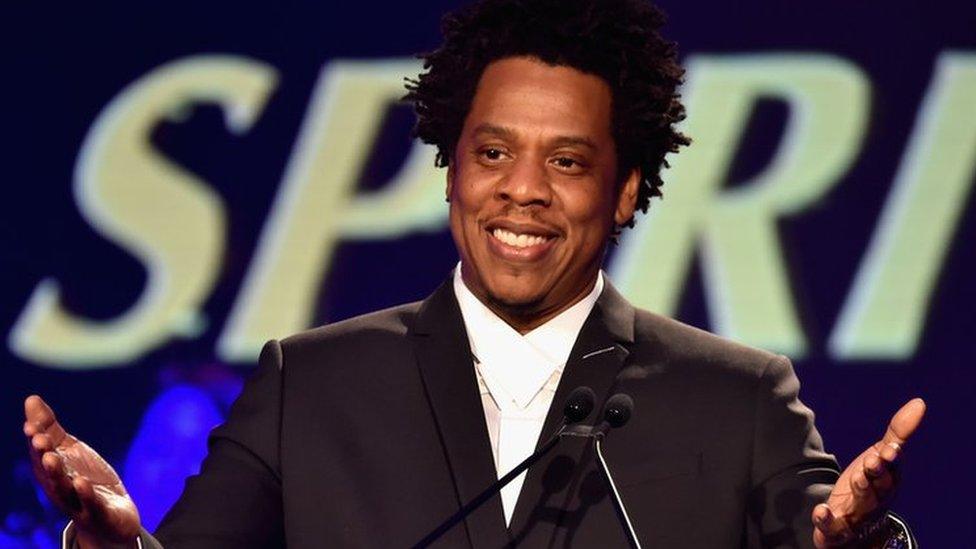21 Savage: Rapper wins release on bond ahead of US deportation hearing
- Published
BBC Radio 1's Nesta McGregor on what we don't know about 21 Savage
Rapper 21 Savage has been granted release from US custody on bond and will be freed on Wednesday in the lead-up to his deportation hearing, his lawyers say.
The 26-year-old, real name Shayaa Bin Abraham-Joseph, was arrested last week by US immigration agents.
They say he is British and in the US illegally.
He moved to the US in July 2005 aged 12 and failed to leave when his visa expired a year later, US officials say.
Immigration and Customs Enforcement (ICE) say the musician is a convicted felon.
His lawyers have accused the US of trying to "intimidate" the rapper into leaving the country.
They say he arrived in the US from the UK in 1999, aged seven.
On Tuesday, attorneys Charles Kuck, Dina LaPolt and Alex Spiro said in a statement that they had been in talks with immigration officials, external to "clarify" the rapper's legal standing and his eligibility for bond.
There are a number of different types of bond in the US, including cash and property, and it is not clear what has been agreed in this case.
"In the last 24 hours, in the wake of the Grammy Awards at which he was scheduled to attend and perform, we received notice that [Shayaa] was granted an expedited hearing," the lawyers' statement reads.
"21 Savage asked us to send a special message to his fans and supporters... [he] is grateful for the support from around the world and is more than ever ready to be with his loved ones and continue making music."
Last week, US rapper Jay-Z said 21 Savage's arrest was "an absolute travesty" and hired Mr Spiro to help with his fight against deportation.
Allow Facebook content?
This article contains content provided by Facebook. We ask for your permission before anything is loaded, as they may be using cookies and other technologies. You may want to read Meta’s Facebook cookie policy, external and privacy policy, external before accepting. To view this content choose ‘accept and continue’.

For many, the rapper's arrest came out of the blue and has raised more questions than answers.
Mr Kuck said the move was "based upon incorrect information about prior criminal charges" and that his client had never tried to conceal his immigration status from authorities.
In 2017, he applied for a US "U Visa" on the basis that he had been the "victim of crime", he added.
U Visas are given to non-citizen victims of crime who intend to co-operate with US authorities.
In 2013, the rapper was shot six times on his 21st birthday in an attack that took the life of his best friend.
Mr Kuck said earlier that 21 Savage was "not a flight risk" and was a "prominent member of the music industry" who would be recognised if he tried to flee.
He said the rapper also had US-born children, which should prevent his client's deportation.
- Published7 February 2019

- Published6 February 2019
